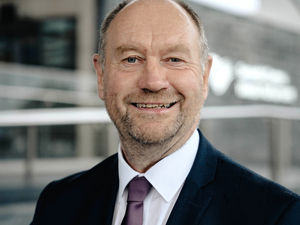Andy Richardson: UK’s fiscal firepower is a leaky water pistol
Andy Richardson gives it to you straight.
Covid figures remain high, but the seriousness has diminished.
While it will take a generation for Covid to work its way through the system as a new generation of youngsters builds up immunity to it, we can be thankful that we’re no longer in the state of lockdown that paralysed the economy and shattered the societal norms that most people enjoy.
The costs for the pandemic, however, have yet to be met. Businesses are slowly recovering, against a backdrop of huge hikes in energy prices and the disastrous effects of Brexit. This isn’t the first time that wholesale fuel prices have been so high. The difference now, however, is that the pound has plummeted since Brexit and so the cost at the pumps is unimaginably high and likely to rise further.
That, however, is far from being the worst. As food prices continue to rise – a combination of Brexit, high energy costs and the war in Ukraine – the Government has yet to tackle the colossal sums spent to deal with the once-in-a-century phenomena.
For all of Boris Johnson’s boasts of fiscal firepower, we’re armed with a leaky water pistol and a tap that’s run dry. We have the lowest growth of the G7 nations – again, say thanks to our friend Brexit – and can look forward to a third round of austerity.
The thing is, the Government and local authorities have yet to make adjustments to pay for costs incurred and cuts are inevitable. So expect bin collections, leisure centres and libraries to face cuts. And from the man who promised to fix social care once and for all – and from a generation that stood on the doorstep and applauded carers as well as NHS staff – expect there to be cuts, rather than increases in expenditure. Councils have a £2.4 billion black hole and 75 per cent are going to reduce services.
It’s not just councils; all sectors face cuts. Dog and animal rescue centres are turning away abandoned pets because they’re already full and unable to afford to house more unwanted cats and dogs.
We have an unpopular Prime Minister who cannot be trusted, who misled Parliament and who partied while the rest of us forsook the opportunity to say goodbye to ailing relatives. Boris Johnson has kept his ministers weak and the lack of a moral compass around the Cabinet table means Britain is in a weaker position than at any time since the No Confidence vote in Theresa May.
Our Donald Trump-lite leader, a man who exits his Prime Ministerial car and jogs 10m to the hotel door, has no vision. His levelling up agenda appears to be little more than a soundbite; there’s the expected lack of substance and absence of delivery that’s commonplace with Boris Johnson policies.
It could be worse, of course. As we look to America and see the leaders of the free world turn back the clock 50 years in taking back control over women’s reproductive rights, sex and contraception will be the next battlegrounds.
LGBTQ+ communities also feel increasing oppression.
With widespread condemnation of our unpicking of the Good Friday Agreement as arguments rage over the Northern Ireland protocol, the Union is increasingly fractured.
Scotland has set a course for a fresh referendum and the alliance that held Great Britain together the last time is increasingly frayed. A new alliance has, instead, emerged; Labour, Lib Dems, Greens and others are picking away at Boris Johnson’s Conservative Party, recording record breaking wins in previously safe Tory seats as voters express deep dissatisfaction at a Prime Minister who wanted to spend £150,000 on a treehouse for his two-year-old son.
That’s right: £150,000. Expect he wasn’t going to pay for it himself – the guy who bought his dodgy wallpaper for the Downing Street flat had been asked to cough up. Just as well Lord Brownlow is worth an estimated £271 million and won lucrative public contracts worth up to £120 million.
There’s something very rotten at the heart of British politics and as white collar barristers and doctors look to follow poorly paid blue collar railways workers in taking action, our problems have only just begun.





